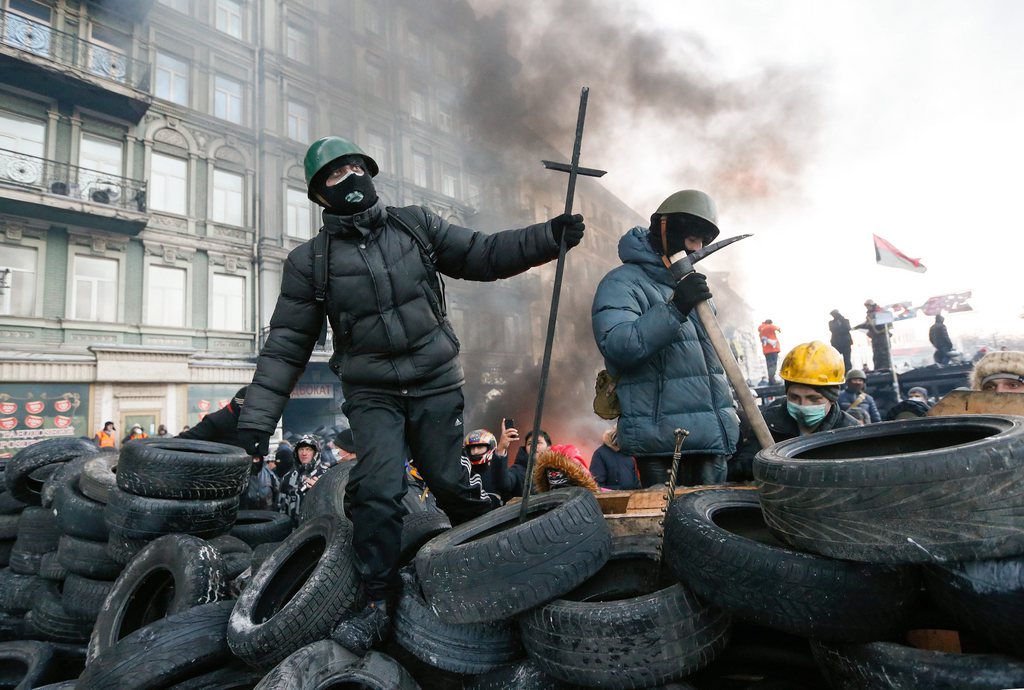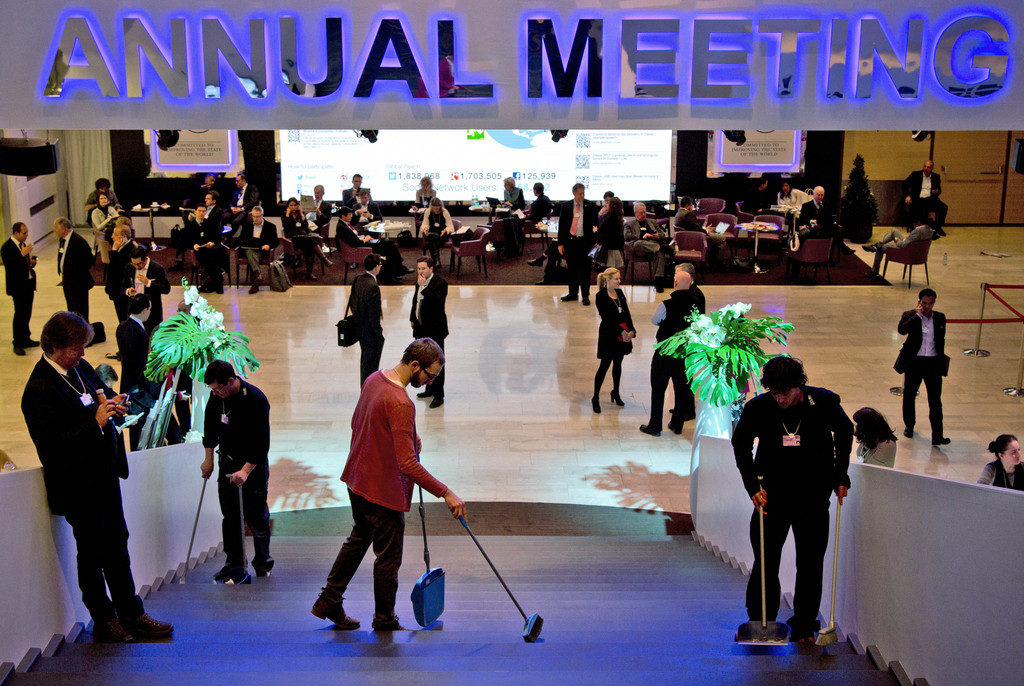Global violence worries Davos delegates

As the world’s elite basked in the warm glow of swanky hotels in Davos, delegates were uncomfortably aware that fires were burning in Syria, Ukraine and Egypt, coupled with the risk of further conflict in Asia and the Middle East.
In the same week as the World Economic Forum’s (WEF) annual event, Switzerland was also hosting summits attempting to resolve the Syrian civil war and growing tensions with Iran. Swiss Foreign Minister Didier Burkhalter told the forum that this demonstrated Switzerland’s dedication to “building bridges” around the world.
However, events in Montreux suggested that this would be harder to achieve than to talk about as representatives on both sides of the Syrian divide traded insults without many signs of finding common ground.
In Davos, a debate involving government ministers from Jordan, Iran, Turkey and the Kurdistan region of Iraq descended into another blame game of which country was supplying weapons or providing shelter to one side or other of the Syrian warring factions.
Blamed in some quarters for propping up the Syrian regime with a flow of arms, Iranian President Hassan Rouhani used a speech in Davos on Thursday to blame the continuing violence on “terrorists” who had arrived in Syria from other countries.
He also insisted that Iran’s nuclear programme had peaceful aims with no intention of making weapons.
But later the same day, Israeli Prime Minister Benjamin Netanyahu told forum delegates that Iran “remains aggressive, supports terror, participates in the slaughter in Syria and is pursuing the development of ballistic missiles and plutonium for nuclear weapons”.
The 44th annual showpiece Davos meeting of the World Economic Forum is entitled “The Reshaping of the World: Consequences for Society, Politics and Business”.
Between January 22-25, some 2,500 participants will listen to leaders from the worlds of politics, business, finance, civil society, religion, culture and science.
Some 50 heads of state will attend, including Japanese Prime Minister Shinzo Abe, Israeli prime Minister Benjamin Netanyahu, Iranian President Hassan Rouhani, British Prime Minister David Cameron, Australian Prime Minister Tony Abbot and South Korean President Park Guen-Hye.
WEF was started by Klaus Schwab in 1971 at Davos, initially under the name “European Management Symposium”.
It was designed to connect European business leaders to their counterparts in the United States to find ways of boosting connections and solving problems.
The forum took its current name in 1987 as it broadened its horizons to provide a platform for finding solutions to international issues.
End of an era
John Chipman, director-general of the British-based International Institute for Strategic Studies, told delegates on Friday that 2014 will mark the end of a “romantic era” of Westerners hoping that uprisings in North Africa and the Middle East would lead to peace, democracy and the end of dictatorships.
In other parts of the world, the tense situation between China and Japan was also frequently mentioned during the WEF summit. Japanese Prime Minister Shinzo Abe engaged in some sabre-rattling during the forum by comparing relations with China to Britain and Germany in 1914.
Ian Bremmer, founder of the security consultancy Eurasia Group, agreed during a WEF debate that tensions could flare up at any point.
“I don’t think we’re going to see military conflict intentionally, but we are entering an environment where mistakes are possible [as is] the likelihood of over-reaction and miscalculation in response to those mistakes,” he said.
US engagement
In Europe, the growing violence and bloodshed in Ukraine between the government and demonstrators forced the withdrawal from Davos of President Viktor Yanukovich and opposition leader Vitali Klitschko.
But as they were locked in negotiations, the country’s prime minister, Mykola Azarov, was in Switzerland blaming the deaths on a group of “ultranationalist” and “militant” thugs on the opposition side who had deliberately turned street protests violent. As a result of the violence, Azarov was frozen out of a debate he was due to participate in at the Congress Centre.
US Secretary of State John Kerry took to the stage at WEF on Friday to pour scorn on growing suggestions that the US is losing interest in foreign affairs.
“I am perplexed by claims that America is disengaging from the world,” he said. “Nothing is further from the truth. America is more engaged than ever.”
Foreign policy had instead turned from military intervention to diplomatic efforts to resolve problems, he added. From Ukraine to Syria, Asia-Pacific, Sudan, Iran and the Middle East, US diplomats are proactively working with others to achieve peace, Kerry said.
In Syria, the US is committed to replacing President Bashar al-Assad with a transitional government including all sides of the conflict. “Assad cannot be part of [Syria’s] future, Kerry said. “[He] is the world’s greatest single magnet for Jihad and terror.”

In compliance with the JTI standards
More: SWI swissinfo.ch certified by the Journalism Trust Initiative


You can find an overview of ongoing debates with our journalists here . Please join us!
If you want to start a conversation about a topic raised in this article or want to report factual errors, email us at english@swissinfo.ch.